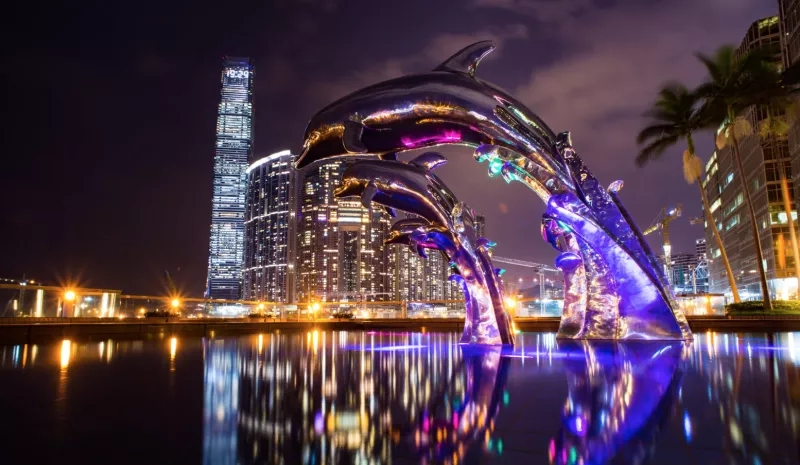Hotels around the world are rolling out a plethora of green initiatives like smart showers, solar power installations, and waste diversion. But what’s right for one hotel may not be right — or achievable — for others.
If you’re interested in winning business by going green, we’ve got you covered with a rundown of tips and strategies to bring sustainable best-practices to your properties. Let’s start by understanding what sustainability means and why it matters for the hotel industry.
What are sustainable, eco-friendly hotels?
Sustainable hotels are businesses that significantly reduce their environmental impact through green best-practices in maintenance, services, logistics, products, and supplies. The core elements revolve around reducing waste, saving energy, and cutting down on water usage.
There are many steps a hotel can take to move toward sustainability. Some of them are major capital expenditures, such as replacement of the HVAC system; others are easy to implement and even low-cost.
Why should hotels go green?
When hotels go green, they do less damage to the environment, lower costs, and win goodwill from guests.
Sustainability in the business world is essential to achieving growth and satisfying customers. Increasingly, consumers seek out green businesses and pay more for eco-friendly products and services. One in three consumers prefer sustainable brands, and the travel industry is taking note. TripAdvisor, for example, has developed its GreenLeaders Program showcasing hotels with environmentally-friendly best practices to conscientious travelers, such as hotels going green with LEED (Leadership in Energy and Environmental Design).
Hotels can also expect to save a good deal of green by going green. Moving toward sustainability means reducing your energy and water consumption, as well as staffing for things like maintenance and guest services.
Here are 25 tips for sustainability across the many different areas of your hotel operation, with examples of specific eco-friendly best practices to consider.
25 must-know eco-friendly hotel ideas:
A) Make your staff eco-friendly
1. Create a green team.
Ask interested employees in each department to participate in a ‘green team’ to take the lead in suggesting eco-friendly best practices in their area. This gives these employees a sense of ownership of green strategies, and more commitment to long-term adoption. Don’t forget to acknowledge their efforts, such as with a small stipend, a special luncheon, or gift cards.
2. Target low-hanging fruit to start.
Chances are your hotel or hotel group already has eco-friendly programs, but there is almost always room for improvement. Some ideas to consider:
Cut down on the use of plastic water bottles by offering hotel reward program members a reusable branded bottle.
Add a water-bottle filling station in the lobby.
Install additional towel racks in bathrooms to make it easy for guests to reuse towels. Create a sign encouraging reuse.
Make recycling options easy to spot. Replace outdated bins with worn recycling symbols and add bins near elevator banks so that guests pass them frequently.
3. Make the hiring and training process green.
Use phone calls for initial interviews instead of asking candidates to swing by — thus cutting down on fossil fuels — and use Skype or Facetime for face-to-face interviews. Instead of printing-out lengthy employee manuals or hiring forms, provide new employees with links to documentation in electronic format, or provide computer access on-site for those without home computers. Steer new applicants to online employment portals rather than requesting hard copy resumes. And be sure to highlight your hotel’s sustainability efforts in hiring materials so all new additions to your staff understand its priority in daily operations.
B) Ensure guest services are eco-friendly
4. Focus on efficiency.
This is the name of the game when it comes to a green corporate culture. Services ranging from remote check-in/check-out to keyless entry cut down on lost plastic key cards, reduces paper usage, and can even help minimize overstaffing — and the additional carbon emissions it causes.
5. Upgrade your transportation offerings and services with sustainability in mind.
Add electric vehicle charging stations for guests with electric or hybrid cars. Consider eBike and eScooter rental options to promote sustainable transportation (be sure to provide helmets for guests). Provide group shuttles (using hybrid or electric vehicles) to public transit hubs to cut down on the number of low-occupancy car trips to and from your hotel.
C) Make guest rooms more green
6. Automate conservation.
Sustainability efforts in guest rooms have evolved beyond cards reminding guests to reuse towels, turn off the AC, or hit the light switch on the way out. Today, many hotels are taking the guesswork out with technology:
Smart showers limit the length of showers to a pre-set time, alerting users when their time is almost over.
Room sensors automatically detect light levels, increasing and reducing the bulb brightness.
Thermostats with occupancy sensors adjust heating and AC temperatures. Utilizing Internet of Things (IoT) technology, these same room amenities can be connected to apps so guests can change settings remotely.
7. Furnish rooms sustainably.
In addition to smart technology, make smart choices in furnishing guest rooms with natural fiber sheets and furniture made of sustainable materials. Stock the room with reusable coffee mugs and glasses rather than plasticware, paper, or styrofoam. In the bathroom, provide natural and organic free-trade soaps and shampoos from certified green manufacturers in biodegradable packaging.
D) food services eco-friendly
8. Reduce waste during events.
Cut down on the number of trash receptacles at your event venue while increasing the amount of recycling options to force attendees to dispose of their waste thoughtfully. Make it easy for guests to recycle by clearly marking and positioning recyclable containers for paper, aluminum cans, and plastic bottles.
9. Incorporate reusable dishes, silverware, glasses and mugs.
This cuts down on the use of straws, plastic serving-ware, and paper plates at your facility. You’ll also save money in lower supply costs and waste management (the less your hotel throws out, the lower the cost for trash hauling). Replace single portions of cereal, yogurt, and jam at your breakfast bar with glass containers to further minimize waste.
10. Shop local.
Source from nearby growers and food providers. It’s a great way to support area farmers while also reducing the carbon emissions caused when you truck-in food from a distance. Menu selections should incorporate sustainable offerings, including vegetarian and vegan items that take fewer resources to produce than meat.
11. Compost and donate food from your kitchen.
Establish processes to compost waste, which can in turn support sustainable gardening practices. Additionally, unused or leftover food can be donated to various local and national food banks and programs like America’s Second Harvest.
E) Make the gift shop green
12. Stock-up with sustainable items.
When choosing which products to sell, or which manufacturers to use for branded apparel and gifts, look at green certified businesses. Explore ethical clothing companies, fair trade accessories, and even ethical travel gear.
13. Operate with efficiency.
In terms of hotel gift shop operations, monitoring occupancy levels at your hotel will help staff the shop properly, cutting down on staff transportation emissions. Sensor lights can automatically dim and brighten at different times of the day, and sensor thermostats can keep the shop comfortable.
For display cases, sensors on doors can brighten interiors when opened, and there are environmentally-friendly point of sale systems that cut down on electricity and paper for receipts.
And by all means, ditch plastic bags for compostable bags or convenient reusable ones that can be returned to the desk or placed in drop boxes.
F) Create hotel landscaping and gardening that's eco-friendly
14. Cut down on runoff.
The excess water from storms, irrigation, and snow that doesn’t evaporate or get absorbed into groundwater is a silent assassin when it comes to the environment. It’s especially tricky on hotel grounds with lots of asphalt parking and concrete outdoor patios. Combat this by planting a rain garden and water detention ponds to collect drainage, in addition to using pervious pavement whenever possible.
15. Water wisely.
Smart irrigation systems can cut down on unnecessary water use with timed watering. You can also reduce overall water requirements by planting drought-resistant native plants and ground cover instead of just grass. This change also reduces the need for pesticides and fertilizers.
16. Install a worm composting bin.
There are many benefits of breaking down organic material into nutrient-rich soil and fertilizer:
Reduce the amount of trash being hauled away to landfills
Keep pests away from your trash (less trash, less pests)
Promote healthy organic growing in your hotel kitchen operations
Reduce plant diseases/require less pesticides
Help soil drain properly to help cut down on runoff
Speed-up the composting process
Cut down on composting odor (since the worms break down the vegetation faster)
You don’t even have to worry about hiding the composting bin — knowledgeable guests will notice and appreciate the effort.
G) Keep hotel utilities green
17. Keep things shady.
It may sound simple, but keeping the sun off your hotel walls and windows can reduce energy use. Plant trees or install awnings and overhangs — these are relatively inexpensive projects with long shelf lives.
18. Automate water and energy conservation.
Use aerators on bathroom sinks to reduce water usage, and replace standard toilets with low flow or dual flush versions. Swap out traditional lights with energy-saving lighting with sensors to automatically turn them on or off, or brighten and dim.
19. Invest in green infrastructure.
Big-ticket items available to hoteliers interested in long-term sustainability ROI include:
Solar panel installations
Energy Star-rated heating and cooling systems
Geothermal cooling towers
Water recovery and recycling systems
H) Make hotel maintenance green
20. Give your operations a check-up.
On a regular basis, be sure to conduct an audit of equipment to make sure they are using the right amount of power — when in use, as well as in standby mode. Your audit will assess your current energy use, identify energy-saving opportunities, and help you quantify potential short- and long-term savings.
21. Keep an eye on your systems.
Monitoring sensors are available for most equipment types in your hotel, from HVAC systems to furnaces to generators. These easy-to-use systems come with wireless reporting systems for predictive maintenance. Even without investment in electronic monitoring, you can still track every system within your facility through an ongoing program involving multiple levels of hotel staff, led by maintenance, to analyze energy waste over a given period of time and create improvement plans.
I) Ensure hotel waste management is sustainable
22. Ditch the plastic water bottles.
Among the most environmentally damaging products on the planet, plastic water bottles take up a ton of space and often get intermingled with garbage during disposal. It’s not difficult to move away from bottled water and toward filtered water dispensers, refillable bottles, and water pitchers for guests and event attendees.
23. Compost whenever possible.
By now, you probably understand that composting is an important sustainability practice. Roughly one third of the food produced in the world for human consumption every year gets lost or wasted. You may be able to compost some waste on your property, but you’ll probably also need to participate in a composting program to divert compostable materials away from landfills. Train your staff to separate compostable waste for efficient pickup. You can also offer your coffee grounds to the public for use as fertilizer.
Finally, if you want to be truly innovative, consider new technologies that can turn food waste into reusable water.
J) Go green for purchasing
24. Make green decisions.
Opt for biodegradable, non-toxic products in sustainable packaging as much as possible. A sustainable purchasing policy is relatively easy to establish, and should incorporate items like:
Paint
Office supplies, writing pads, and pens
Light bulbs
Cleaning supplies, sanitizers, and adhesives
Paper products
25. Shop for certified green appliances.
How much money is your hotel wasting on inefficient appliances? Look to replace your existing lineup with energy-saving appliances like commercial fryers and griddles, ice machines, ovens, dishwashers, freezers, and refrigerators. Pay close attention to older-model washing machines which should be swapped out as soon as possible with models that conserve energy and water.
Share the good news about your sustainable hotel:
As you take steps to improve sustainability, it’s imperative to get the word out about these positive practices.
Social media is popular with environmentally-conscious consumers. There are a plethora of social communities you can reach with hashtags like #zerowaste and #sustainablebusiness to get your hotel sustainability story circulating with target audiences.
Incorporate your sustainability business practices into your hotel's search engine optimization (SEO) marketing efforts to rank higher in Google search results. Do your research ahead of time to see which keywords are trending with guests searching for green hotels, ecotourism, sustainable lodging, and ecotels.
Partner with green business organizations. Many of these, like the Green Hotels Association, have certification programs and effective marketing and publicity tools to draw attention to your efforts.
Email marketing is another key tool in sharing your news. Sustainability is a topic your customers are incredibly passionate about; 88 percent of consumers want businesses to help them make a difference, which bodes well for higher email open rates and conversions.
Be sure to avoid greenwashing!
The hospitality industry should be wary of greenwashing when sharing sustainability stories, as environmentally conscious consumers react negatively to this practice. Research shows close to 80 percent of hotel guests say sustainable practices are important when choosing where they stay; that said, a majority are willing to avoid revisiting — and even boycott — a hotel that engages in greenwashing. Some common examples of greenwashing include:
Over-exaggerating: If you’re only implementing one or two sustainability initiatives, that doesn’t make your hotel green; rather, it makes you a hotel with one or two sustainability initiatives.
Ambiguity: Despite the common use of the term ‘eco-friendly,’ it doesn’t have a regulated meaning. The public understands this and expects evidence to back up your use of green terms.
Utilizing faux-green products: When making purchases of things like sustainable room soaps, cleaning products, and organic foods be sure to research the provider’s reputation to make sure they are legit and not just using self-declared “certified” or “100-percent organic” without proof.
Over-the-top use of “green” imagery: Over-indulgence in unjustified green branding by using photos of animals and flora is a quick way to turn people off.
Too much data: Try not to swamp your guests with information or overly technical terms when detailing sustainability efforts. Making things too complex won’t gain attention and may, in fact, frustrate guests.
As more hotels work to incorporate sustainable principles into their meetings, events, and guest services, more and more guests expect many of today’s eco-friendly innovations as standard amenities. Developing green best practices now to address these expectations is the key to boosting your bottom line. It will also lower the risk of losing customers to hotels with deep sustainability programs.
Inspired to make your hotel green — or greener? Check out 8 must-know tips to create, and promote, sustainable meetings and events.








